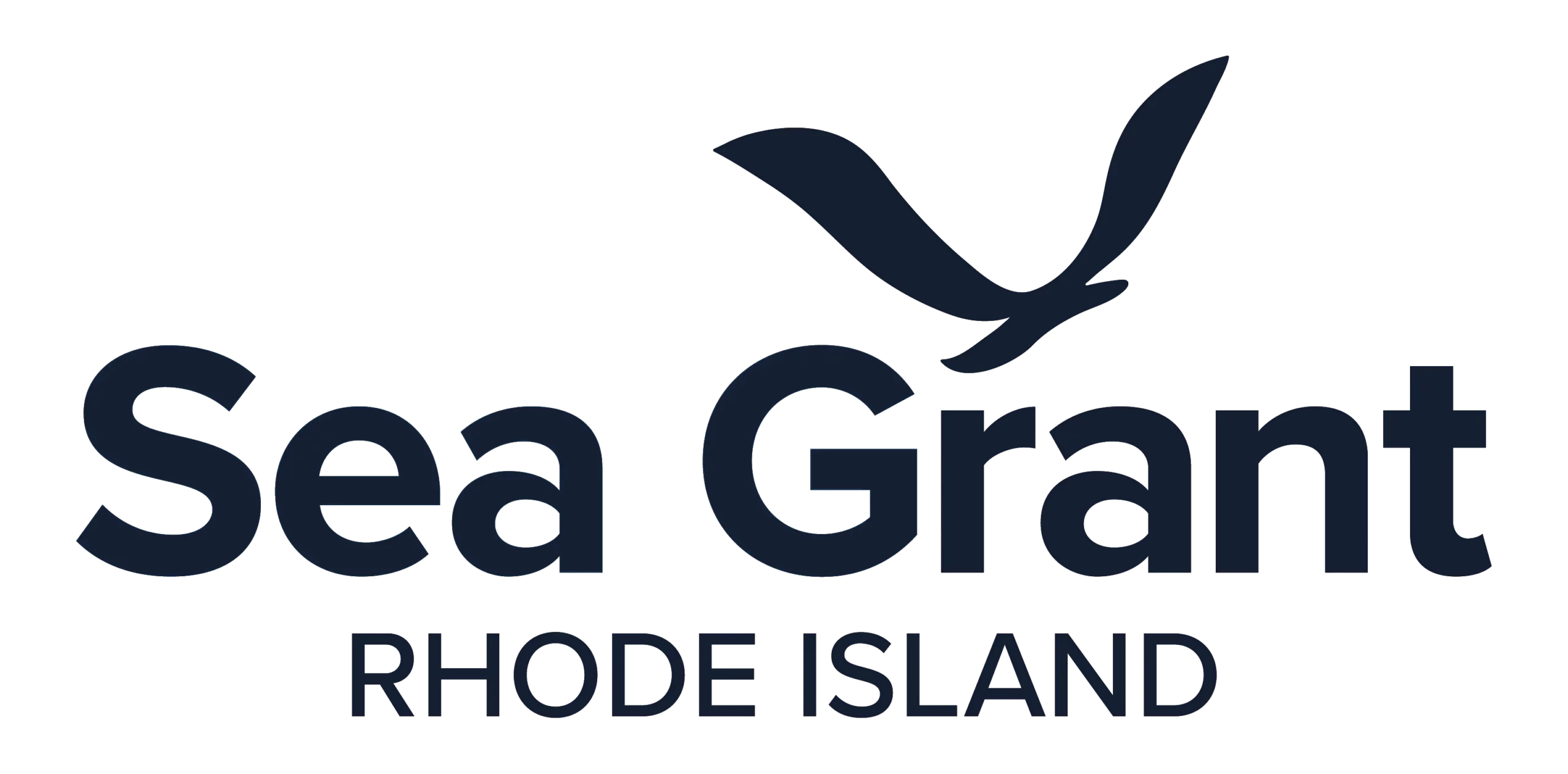Courtesy of URI TodayBy Todd McLeish
KINGSTON, R.I. – August 25, 2020 – Dressed in bright orange jumpsuits and matching masks, University of Rhode Island students Cara Megill and Jacqui Roush stood at Conimicut Point in Warwick and flipped a switch to begin pumping about 50 gallons of seawater through a complex filter system designed and built by their advisors, Andrew Davies and Coleen Suckling.
It’s a process they repeated almost daily from mid-July through August at a dozen sites around Narragansett Bay as part of a research project to document the location, concentration and movement of microplastics in the bay. With the help of Save The Bay, the students also deployed a manta-trawl net from a boat to skim for plastics at the water’s surface.
“We’re hoping to get an idea of how microplastics are dispersed across the bay, if more are concentrated in some places than others, and how it changes with time and weather,” explained Roush, a sophomore from Snohomish, Washington, majoring in marine biology and ocean engineering. “The project relates to a lot of issues around the bay, like the impact of microplastics on aquaculture and its effect on the local ecology.”
Roush and Megill, a senior marine biology and chemistry major from Boyertown, Pennsylvania, found microscopic pieces of plastic at every site they tested – coastal locations from Point Judith to Providence as well as at sites in the middle of the bay. The took their samples back to Suckling’s laboratory on URI’s Kingston campus to filter out non-plastic particles, and they are now analyzing each sample to see if they can identify the source of the plastic and how it got into the bay.
“A lot of the samples are very tiny plastic fibers and unidentified plastic beads,” Megill said. “We get some algae and jellyfish and cotton fibers, too, but those get removed when we process the samples. From what we’ve seen so far, we’re getting plastics that look like they came from fishing line and plastic fibers from clothing that came out in the laundry. We’re still perfecting the best methods for identifying what’s in our samples.”
The students’ research is supported by Rhode Island Sea Grant and the URI Coastal Fellows program, a unique initiative designed to involve undergraduate students in addressing current environmental problems. Now in its 24th year, the program pairs students with a mentor and research staff to help them gain skills relevant to their academic major and future occupations.
“It’s really the best of both worlds. I’m getting experience working in the field as well as in the lab,” said Megill, who got hooked on marine science while vacationing with her family in Bermuda. “It’s been a great learning experience about microplastics and about the research process in general.”
Roush agreed. “This was my first intense career experience in marine biology, and I really liked the satisfaction of doing the work ourselves and contributing to something as important as this,” she said. “Taking it from an initial plan and making it a reality has been great, but I also learned a lot of problem-solving skills when things didn’t quite go as expected.”
Roush also appreciated how the project gave her a sense for what graduate school research might be like and what to look for when making plans for her future career studying deep sea biology and robotics for deep sea exploration.
Megill also plans a career in marine research, but her interests tie in closely with her summer fellowship.
“I’ve always been passionate about studying plastics pollution, and this research has solidified that interest,” she said. “I especially want to study the effects of plastics on coral reefs, and the field work and the lab work I did this summer have convinced me I’m heading in the right direction.”
Microplastics as Vectors for Organic Pollutants & Marine Disease
Learn more about Rhode Island Sea Grant’s funded project that is investigating whether microplastics act as a vector for marine pollutants and disease that could impact shellfish.
